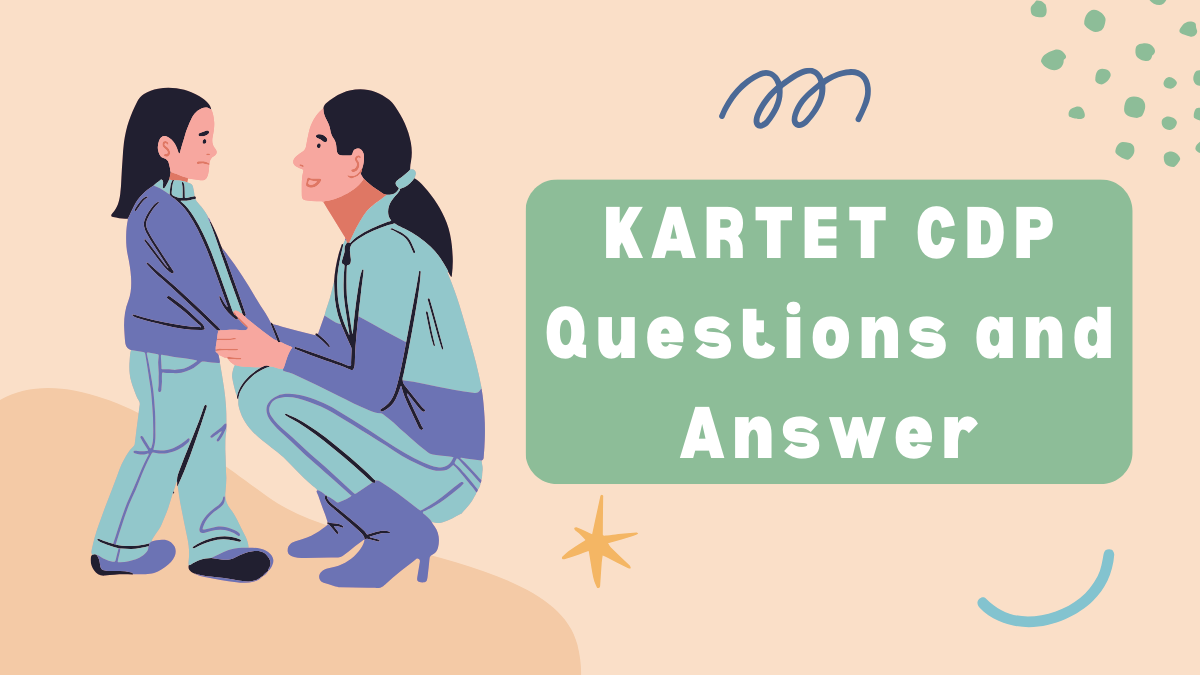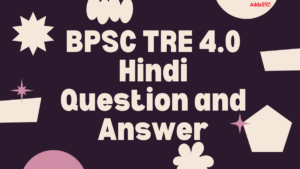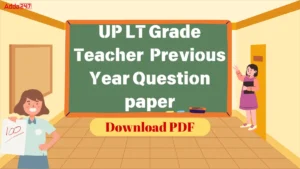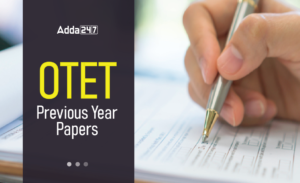Table of Contents
The School Education Department of Karnataka has confirmed that the KAR TET 2025 Exam will be held on 7 December 2025, and all major updates are available on the official website. With the exam date around the corner, candidates are putting in extra effort to improve their performance.
Child Development and Pedagogy (CDP) is one of the most important parts of the test, carrying 30 marks in both Paper 1 and Paper 2. It covers areas like child psychology, learning theories, stages of development, and classroom-based teaching approaches. To help you revise these concepts better, we’ve put together a set of KARTET CDP Questions and Answers that will build clarity and boost your score in the exam.
KARTET CDP Question and Answers
The KAR TET Exam 2025, conducted by the School Education Department of Karnataka, will take place in offline mode. This test is an essential qualification for anyone looking to teach in government schools across the state. Since the Child Development and Pedagogy (CDP) section plays a major role in both Paper 1 and Paper 2, candidates need a firm grasp of its core ideas. CDP covers child psychology, learning theories, developmental stages, classroom approaches, and the principles behind effective teaching. To make your preparation smoother, the following table gives a simple breakdown of the major topics, their weightage, and the areas you should focus on during revision.
- Paper: Comes in both Paper I and Paper II
- Total Questions: 30 questions (in each paper)
- Total Marks: 30 marks (on each paper)
- Total Time: 2.5 hours
- Marking: Each right answer carries 1 mark
- Negative Marking: No negative marking
- Question Pattern: Objective type
- Language: Bilingual
- Difficulty Level for Paper 1: Up to 8th class
- Difficulty Level for Paper 2: Up to 10th class
- Examination Pattern: Based on the primary level for Paper I and the upper primary level for Paper II.
KARTET Result 2025 Out – Click to Download
Download KARTET CDP Questions and Answers PDF
Candidates can download the Karnataka TET CDP Questions and Answers PDF using the direct link provided below. This comprehensive resource covers key topics, including learning theories, teaching methodologies, and reasoning-based pedagogy questions relevant to the KARTET CDP section. Aspirants are advised to study this material carefully to enhance their conceptual understanding and boost their preparation ahead of the exam.
Download KARTET CDP Questions and Answers PDF
KARTET CDP Questions and Answers
Q1. Which period marks the transition from childhood to adulthood?
(a) Early childhood
(b) Middle childhood
(c) Preoperational period
(d) Adolescence
Q2. Which of the following would require use of gross motor skills?
(a) Painting on a paper using brush
(b) Cutting and pasting bits of paper
(c) Threading the needle
(d) Walking and running
Q3. The first primary agent of socialization is ________
(a) family
(b) school
(c) friends
(d) media
Q4. The belief that physical objects such as dolls, cars, etc have life-like qualities is called -.
(a) Animistic thinking
(b) Hierarchical thinking
(c) Centration
(d) Categorization
Q5. Assertion (A): Four-year-old Riya cannot take into consideration the height and width of the two beakers at the same time while pouring the same amount of water into tall and wide beakers.
Reason (R): Riya is at Preoperational stage of cognitive development as per Jean Piaget.
Choose the correct option.
(a) Both (A) and (R) are true and (R) is the correct explanation of (A).
(b) Both (A) and (R) are true but (R) is not the correct explanation of (A).
(c) (A) is true but (R) is false.
(d) Both (A) and (R) are false.
Q6. Giving cues and offering support to children as and when required is an example of
(a) Scaffolding
(b) Reinforcement
(c) Conditioning
(d) Cognitive conflict
Q7. The application of Vygotsky’s theory to children’s education proposes
(a) collaborative learning
(b) operant learning
(c) rote learning
(d) passive learning
Q8. In Kohlberg’s __________________ of moral development the individual strives to maintain the expectations of others rather than focus on the consequences of one’s actions.
(a) Preoperational level
(b) Pre-conventional level
(c) Conventional level
(d) Post-conventional level
Q9. A progressive classroom is
(a) Examination-centric
(b) Textbook-centric
(c) Teacher-centric
(d) Learner-centric
Q10. Renu is a counsellor at a school. Which intelligence should she have to be an effective counsellor as per Howard Gardner’s theory?
(a) Linguistic
(b) Spatial
(c) Interpersonal
(d) Intrapersonal
Solutions
S1. Ans.(d)
S2. Ans.(d)
S3. Ans.(a)
S4. Ans.(a)
S5. Ans.(a)
S6. Ans.(a)
S7. Ans.(a)
S8. Ans.(c)
S9. Ans.(d)
S10. Ans.(c)




 BPSC TRE 4.0 Hindi Question and Answer, ...
BPSC TRE 4.0 Hindi Question and Answer, ...
 UP LT Grade Teacher Previous Year Questi...
UP LT Grade Teacher Previous Year Questi...
 OTET Previous Year Question Papers, Down...
OTET Previous Year Question Papers, Down...













